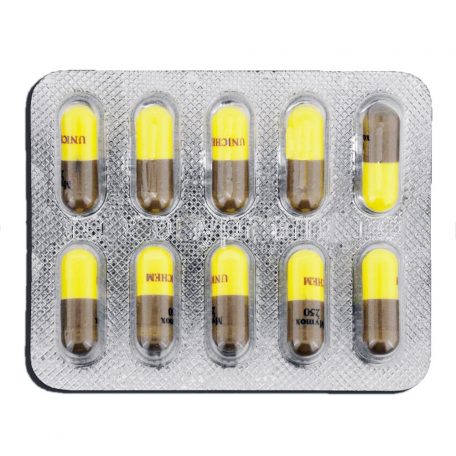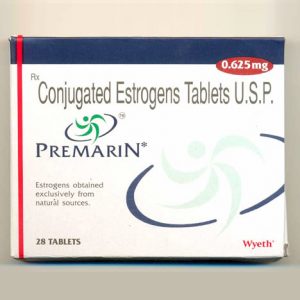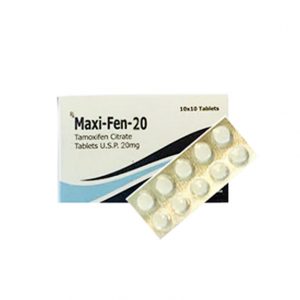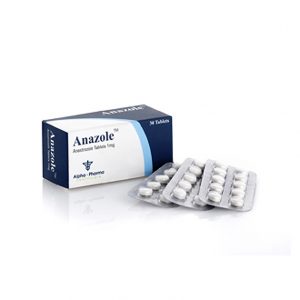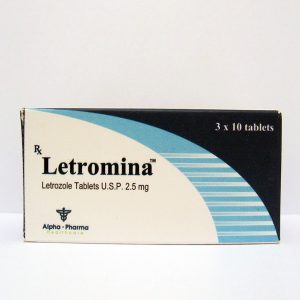Product Description
Buy Amoxicillin in Canadian steroids shop. It’s convenient to pay with card.
Our bodybuilding store in Canada provides perfect quality Amoxicillin for sale online. ZEE LABORATORIES’s Vemox 250 is top quality Amoxicillin 250mg 30 pills (Amoxicillin) from famous PCT producer.
Our online pharmacy delivers PCT across Canada, so we can ship your order to you fast, safe and discreet no matter where you live: Ontario, Quebec, Alberta, Nova Scotia, New Brunswick, Manitoba, British Columbia, Prince Edward Island, Saskatchewan, Newfoundland and Labrador. Please, use our United States shop for worldwide delivery. We offer reshipping policy for missing, seized or damaged parcels.
We are working as steroid suppliers since March 2009 and have great experience in catering steroids in Canada with full comfort for customers.
Our support department works 24/7 and always ready to answer any questions and solve any problems if such arise suddenly, all packages have tracking codes. We send notification emails for your order’s status change and you can always check current status via our special online service.
Vemox 250 is widely known as Amoxicillin, Amoxil
In Canada there are alternate names for Vemox 250 (Amoxicillin): ZEE LABORATORIES, Amoxicillin, Amoxicillin, Amoxicillin 250mg 30 pills, Vemox 250 250mg 30 pills.
All these are different names of the same substance – Amoxicillin
Composit uses / indication of VEMOX-250 (Amoxicillin)
Infections in different parts of the body caused by bacteria. It is also used to stop infections in case of tooth removal or other surgery
Composit contra indication of VEMOX-250
Individuals with a history of an allergic reactions to the penicillins. Contraindicated during pregnancy.
Composit side effects of VEMOX-250
Nausea, vomiting and diarrhoea. Urticaria, skin rashes and serum sickness. Rise in SGOT. Anemia, thrombocytopenic purpura, eosinophilia, leukopenia and agranulocytosis.
Composit caution of VEMOX-250
Renal and hepatic disease; pregnancy, lactation; infectious mononucleosis.
Summary
| Typical use Of Amoxicillin : | Amoxicillin Is Used To Treat Bacterial Infections Of The Respiratory Tract, Genital And Urinary Tract, Skin And Soft Tissue, Ear, Nose And Throat, Heart, Blood, Teeth, And Gums. |
|---|---|
| Mechanism of action of Amoxicillin : | Amoxicillin Kills Bacteria By Interfering With The Production Of The Bacterial Cell Wall. As A Result, The Bacterial Cell Wall Is Weakened, The Cell Swells And Then Ruptures. |
| Drug Interaction of Amoxicillin : | Warfarin, Probenecid, Allopurinol, And Methotrexate Are Known To Cause Increased Blood Level Of Amoxicillin. Amoxicillin Decreases The Effects Of Chloramphenicol And Oral Contraceptives. Always Consult Your Physician For The Change Of Dose Regimen Or An Alternative Drug Of Choice That May Strictly Be Required. |
| Side effects of Amoxicillin : | The Common Side Effects Are Diarrhea, Urge To Vomit, And Vomiting, Skin Rash. You May Also Experience Diarrhea, Stomach Upset, Seizures, Decrease In White Blood Cells, Prolonged Bleeding Time, Swelling, Hypersensitivity, Stomach Pain Or Severe Diarrhea (possibly With Bleeding), Yellow Eyes Or Skin, Flu, Loss Of Appetite, Unusual Bleeding Of Skin Or Bruising Or Skin Discoloration, Rashes And Itching, Blistering Of The Skin, Mouth, Eyes, Or Genitals, Wheezing, Difficulty In Breathing, Feeling Dizzy, Swelling Of Face, Neck Or Tongue, Pain Or Burning While Urinating With Darker Urine. |
Amoxicillin full info
Therapeutic Class |
Semisynthetic ampicillin derivative | ||||||||||||||||||||||||||||||||||||||||||||||||||||||||||||||||||||||||||||||||||||||||||||||||||||||||||||||||||
Indications |
Treatment of infections of the ear, nose, throat, genitourinary tract (GU), skin and skin structure (SSSI), lower respiratory tract (LRTI); and acute, uncomplicated gonorrhea (anogenital and urethral infections) due to susceptible (β-lactamase negative) strains of microorganisms. Combination therapy for Helicobacter pylori eradication to reduce the risk of duodenal ulcer recurrence. Oral
Oral
Oral
Oral
Oral
Oral
Oral
Oral
Oral
Oral
Oral
Oral
Oral
Oral
Oral
Oral
Oral
Parenteral
Intravenous
|
||||||||||||||||||||||||||||||||||||||||||||||||||||||||||||||||||||||||||||||||||||||||||||||||||||||||||||||||||
Contraindications |
Hypersensitivity |
||||||||||||||||||||||||||||||||||||||||||||||||||||||||||||||||||||||||||||||||||||||||||||||||||||||||||||||||||
Warnings / Precautions |
Serious, occasionally fatal, hypersensitivity (anaphylactic) reactions reported with penicillin (PCN) therapy. Clostridium difficile-associated diarrhea (CDAD) reported. Avoid use with mononucleosis; erythematous skin rash may develop in these patients. May result in bacterial resistance with prolonged use or use in the absence of a proven/suspected bacterial infection or a prophylactic indication; d/c and institute appropriate measures if superinfection develops. May result in false-positive urinary glucose tests; glucose tests based on enzymatic glucose oxidase reactions may be used. May cause a transient decrease in plasma concentrations of total conjugated estriol, estriol-glucuronide, conjugated estrone, and estradiol in pregnancy. Monitor renal function in elderly. Caution in elderly. |
||||||||||||||||||||||||||||||||||||||||||||||||||||||||||||||||||||||||||||||||||||||||||||||||||||||||||||||||||
Adverse Reactions |
Hyperactivity, agitation, insomnia, dizziness; maculopapular rash, exfoliative dermatitis, urticaria, hypersensitivity vasculitis; diarrhoea, nausea, vomiting; anaemia, thrombocytopenia, leucopenia, agranulocytosis, black hairy tongue,pseudomembranous colitis,tooth discoloration. |
||||||||||||||||||||||||||||||||||||||||||||||||||||||||||||||||||||||||||||||||||||||||||||||||||||||||||||||||||
Drug Interactions |
Increased levels with disulfiram and probenecid. Decreased effects with tetracyclines and chloramphenicol. Amoxicillin may also interact with the following groups of drugs: |
||||||||||||||||||||||||||||||||||||||||||||||||||||||||||||||||||||||||||||||||||||||||||||||||||||||||||||||||||
Mechanism of Actions |
This drug acts by inhibiting the synthesis of bacterial cell walls. It inhibits cross-linkage between the linear peptidoglycan polymer chains that make up a major component of the cell walls of both Gram-positive and Gram-negative bacteria, thus inhibiting cell wall biosynthesis resulting in bacterial lysis. Absorption: Rapidly and completely absorbed from the GI tract with peak plasma concentrations after 1-2 hr (oral). Not inactivated by gastric acid and presence of food does not impair absorption. Distribution: Widely distributed, CSF (small concentrations except when the meninges are inflamed), bile (high concentrations); crosses the placenta and enters the breast milk (small amounts). Protein-binding: 20%. |
||||||||||||||||||||||||||||||||||||||||||||||||||||||||||||||||||||||||||||||||||||||||||||||||||||||||||||||||||
Assesment |
Assess for history of allergic reaction to PCNs, cephalosporins, or other allergens, mononucleosis, renal/hepatic function, pregnancy/nursing status, and possible drug interactio |
||||||||||||||||||||||||||||||||||||||||||||||||||||||||||||||||||||||||||||||||||||||||||||||||||||||||||||||||||
Monitoring |
Monitor for serious anaphylactic reactions, erythematous skin rash, development of drug-resistant bacteria or superinfection with fungal or bacterial pathogens, signs/symptoms of CDAD (may range from mild diarrhea to fatal colitis). Periodically monitor renal (especially in elderly) and hepatic function. |
||||||||||||||||||||||||||||||||||||||||||||||||||||||||||||||||||||||||||||||||||||||||||||||||||||||||||||||||||
Patient Counselling |
Inform drug treats bacterial, not viral, infections. Instruct to take exactly ud; skipping doses or not completing full course may decrease effectiveness and increase likelihood that bacteria will develop resistance. Inform about potential benefits/risks; notify physician if watery/bloody stool (with/without stomach cramps and fever) develops (may occur as late as 2 months after treatment). Advise patients that drug may cause allergic reactions. |
||||||||||||||||||||||||||||||||||||||||||||||||||||||||||||||||||||||||||||||||||||||||||||||||||||||||||||||||||
Administration |
May be taken with or without food. (May be taken w/ meals for better absorption & to reduce GI discomfort.) Intravenous: Store at 20-25°C. Parenteral: Store at 20-25°C |
||||||||||||||||||||||||||||||||||||||||||||||||||||||||||||||||||||||||||||||||||||||||||||||||||||||||||||||||||
Pregnancy Category |
B: Animal reproduction studies have failed to demonstrate a risk to the fetus and there are no adequate and well-controlled studies in pregnant women OR Animal studies have shown an adverse effect, but adequate and well-controlled studies in pregnant women have failed to demonstrate a risk to the fetus in any trimester. |
Buy Vemox 250 online in Canada (Amoksisilliini 250mg 30 pillereitä). Los esteroides anabólicos en Estados Unidos: Vemox 250 (Amoxicillin 250 mg 30 pillen). Achat de Vemox 250 au Canada (Amoxicillin 250mg 30 pastillas)
 Trenbolone Enanthate - Trenbolin [Trenbolone Enanthate 250mg 10 ampoules]
Trenbolone Enanthate - Trenbolin [Trenbolone Enanthate 250mg 10 ampoules]  Testosterone Propionate 50mg, Trenbolone Acetate 50mg, Drostanolone Propionate 50mg - Trenbolone Mix - Prima-Max [Trenbolone Mix 150mg 10ml vial]
Testosterone Propionate 50mg, Trenbolone Acetate 50mg, Drostanolone Propionate 50mg - Trenbolone Mix - Prima-Max [Trenbolone Mix 150mg 10ml vial] 